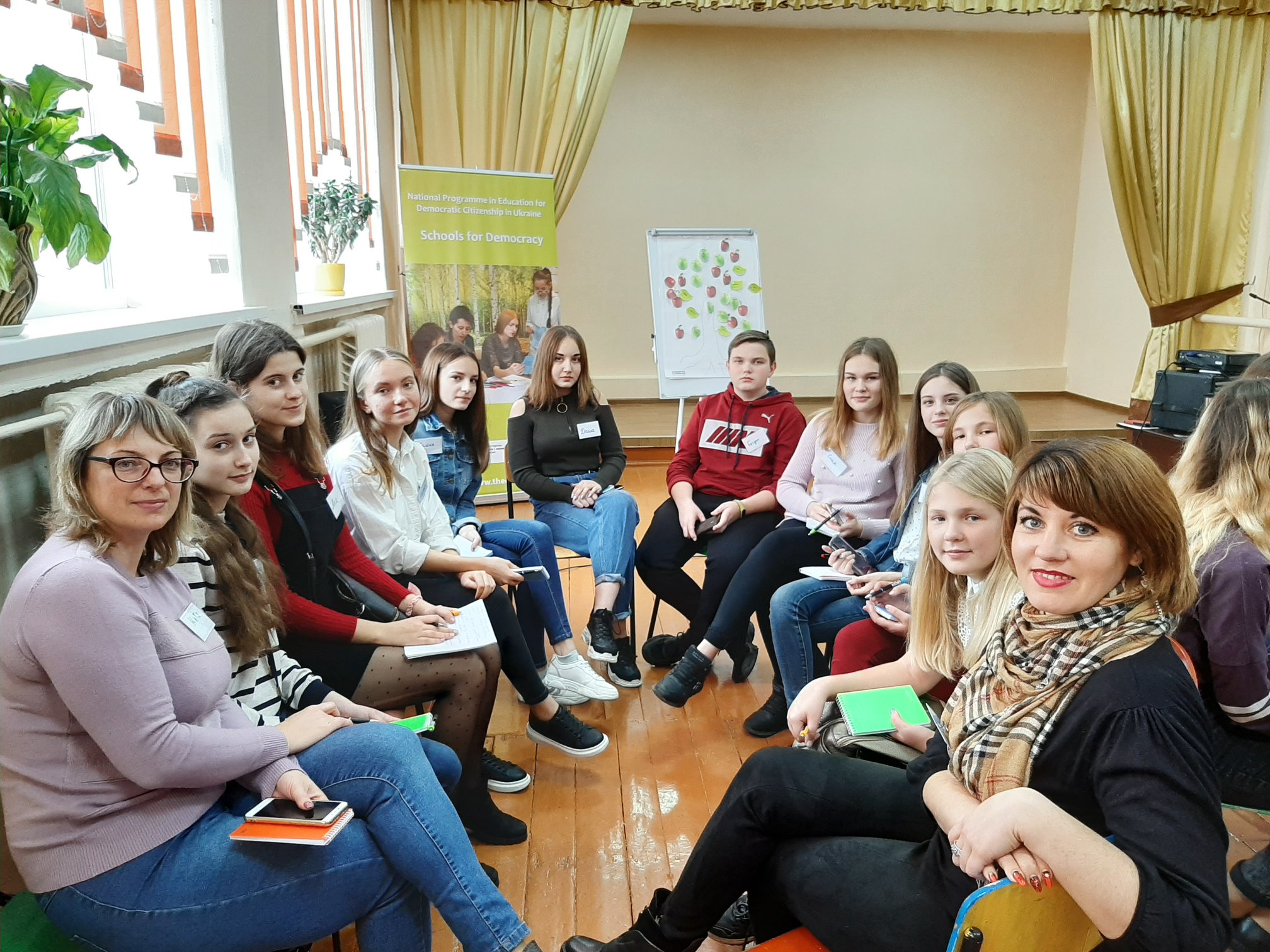Zolotonosha, Chernihiv region

Thanks to the joined efforts of representatives of formal and non-formal education, training on school mediationwas held in In the Chernihiv region. Mediation is a constructive way of resolving conflicts at school, which, in addition, empowers students and teaches them to be more responsibile.
Several schools in the region met through the Democratic Schools network. Their representatives visited the creative workshops of the program "Increasing the competences of democratic citizenship through formal, non-formal and informal education". In the conversation about school conflicts and ways to work on their prevention, the idea of learning about mediation was born. This mini-project was realized within the framework of the program.
Learning about school mediation, a method of resolving conflicts at school by non-violent means, through negotiation with the help of a neutral impartial person - mediator, took place at School № 3 in Zolotonosha. The training was conducted by a qualified mediation trainer Olga Datsko. The participants were teachers, administration and students from Chernihiv region schools.They earned about the mediation approach when the students are mediators of conflicts happening in students environment.
Conflicts at school are a natural phenomenon, they are connected with coexistence, development, education in one space of a large number of people - children and adults. An approach to conflict resolution based on democratic values - respect, equality, tolerance, trust promotes the development of responsibility, communicative competences, teaches participants in conflict situations to understand their causes and consequences. In schools where school mediation services operate, an atmosphere of collaboration and understanding is formed and students feel protected because everyone has the right to make a mistake. Moreover, students bring efficient communication skills into their families, while also reducing tensions in school life.
This training provided an opportunity for schools that want to develop their own mediation service, to learn from the experience of other schools where such services already operate, to talk about the simple practical things that make such a service possible. This includes, in particular, the support and understanding of the school administration, the availability of a separate room, a responsible and trained teacher who will become the coordinator of the school mediation service.
As a result of this mini-project, a handbook on school mediation has emerged and tips on how to organize this process at school (Ukrainian version only).
